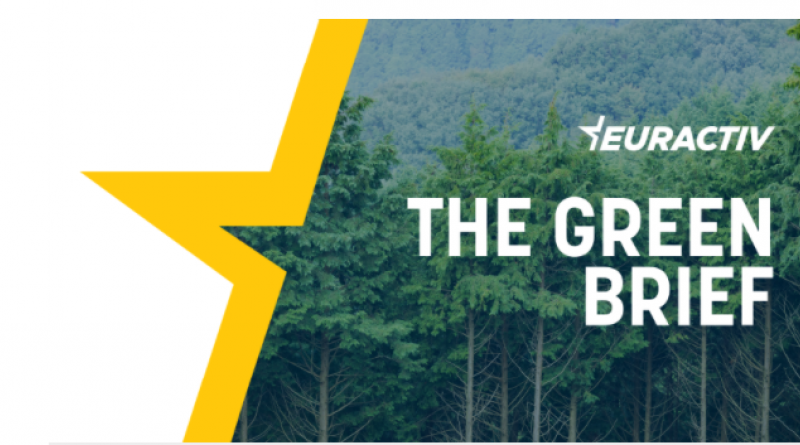The Green Brief: Europe’s green finance taxonomy wars, part 3.

Greetings and welcome to EURACTIV’s Green Brief. Below you’ll find the latest roundup of news covering energy & environment from across Europe. You can subscribe to the weekly newsletter here.
After a failed attempt last year, the European Commission is finally presenting today (21 April) its first batch of implementing rules under the EU’s sustainable finance taxonomy, laying down detailed technical criteria for what can be labelled a “green” investment in the EU.
In doing so, the EU executive will also open a new chapter in what can now be branded as the European ‘taxonomy wars’.
The first chapter was opened in December 2019 when Britain and France – backed at the time by Bulgaria, Czechia, Hungary, Poland, Romania, Slovakia, and Slovenia – blocked a deal on the EU taxonomy regulation, the overarching law which sets out the key principles of sustainable finance at European level.
Their fear back then was that the taxonomy would exclude investments in nuclear and gas projects from being labelled “green” in the race to cut emissions to net-zero by 2050.
To seal a compromise, negotiators from EU member states and the European Parliament agreed to delay a decision on gas and nuclear, leaving the European Commission’s experts groups to draft a series of “technical screening criteria” that would decide under which conditions gas or nuclear could be eligible for a “green” or “transition” investment label.
There is a trick, however. Those implementing rules, according to the December compromise, were to be decided via so-called “delegated acts”, a fast-track legislative procedure allowing the Commission to legislate almost on its own. The European Parliament and EU member states are denied any real say – all they can do is approve the Commission proposal or reject it as a whole. In other words, it’s take it or leave it.
This sowed the seeds of the second taxonomy wars, which opened in November last year when the Commission put out its first batch of draft implementing rules for a public consultation.
The draft caused uproar among eastern and southern EU member states, who complained that natural gas had been denied “transition” fuel status. A new veto threat was wielded by a similar group of countries – Bulgaria, Croatia, Cyprus, Czechia, Greece, Hungary, Malta, Poland, Romania, and Slovakia – forcing the Commission back to the drawing board.
A third chapter is now opening up, with the first series of “delegated acts” finally due to be published today, after the aborted November attempt.
In a repeat of the first chapter, the European Commission is again expected to delay a decision on gas and nuclear, leaving the Parliament and EU member states to decide separately at a later stage.
This may look like a risky bet for the climate. Critics among the Greens have already warned about an unacceptable politicisation of the taxonomy, and a departure from the science-based approach initially taken by the Commission expert groups.
But this is also the only pragmatic way forward. By tabling a separate proposal for gas and nuclear later this year, the Commission is throwing the ball back into the court of EU member states and Parliament, acting as co-legislators.
In doing so, Brussels is also putting them in front of their political responsibilities.
– Frédéric Simon
21 April 2021
Euractiv




